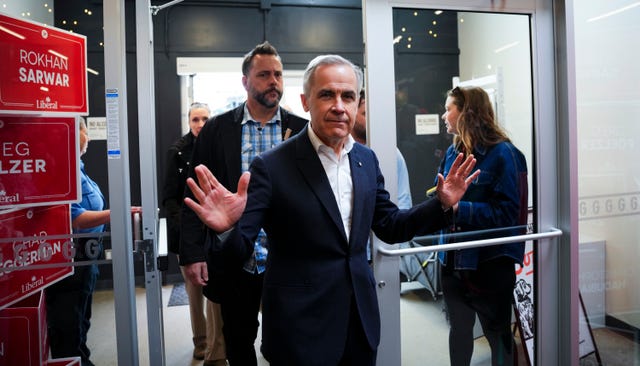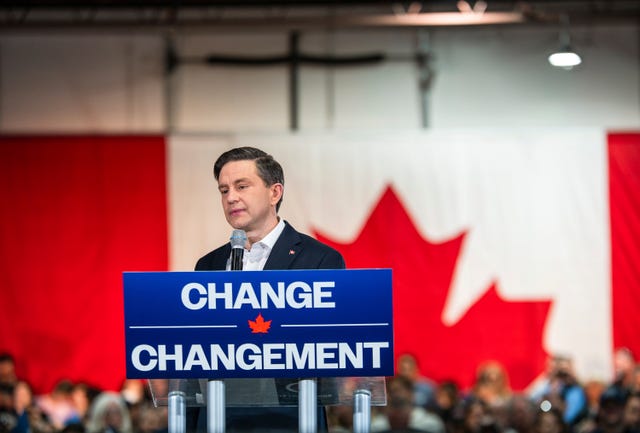Canadians set to vote in election dominated by Trump’s trade war and bluster
Voters will choose between Prime Minister Mark Carney and the Liberal Party or the Conservative Party’s Pierre Poilievre.

Canadians are going to the polls to decide whether to extend the Liberal Party’s decade in power or instead hand control to the Conservatives.
They will pick either Prime Minister Mark Carney or opposition leader Pierre Poilievre to lead the way forward, but .
Until the American president won a second term and began threatening Canada’s economy and sovereignty, even suggesting the country should become the 51st state, the Liberals seemed set for defeat.

Canadians are voting as the country grapples with the aftermath of a fatal car-ramming attack in Vancouver on Saturday.
The tragedy on the eve of the election prompted the suspension of campaigning for several hours. Police ruled out terrorism and said the suspect is a local man with a history of mental health issues.
Mr Trump’s truculence has infuriated many Canadians, leading many to cancel US holidays, refuse to buy American goods and possibly even vote early – a record 7.3 million Canadians cast ballots before election day.
The US president also put Mr Poilievre and the Conservative Party on the back foot after they appeared to be heading for an easy victory only months ago.
“The Americans want to break us so they can own us,” Mr Carney said recently, laying out what he saw as the stakes for the election. “Those aren’t just words. That’s what’s at risk.”

Mr Poilievre, a populist firebrand who campaigned with Trump-like bravado, had hoped to make the election a referendum on former prime minister Justin Trudeau, whose popularity declined towards the end of his decade in power as food and housing prices rose and immigration surged.
But then Mr Trump became the dominant issue, and Mr Poilievre’s similarities to the bombastic president could cost him.
“He appeals to the same sense of grievance,” Canadian historian Robert Bothwell said of the Conservative leader. “It’s like Trump standing there saying ‘I am your retribution’.”
Foreign policy has not dominated a Canadian election this much since 1988, when, ironically, free trade with the United States was the prevailing issue.
Whichever candidate emerges as prime minister will face a litany of challenges.
Canada has been dealing with a cost-of-living crisis for some time. And more than 75% of its exports go to the US, so Mr Trump’s threat to impose sweeping tariffs and his desire to get North American car manufacturers to move Canada’s production south could severely damage the Canadian economy.
Both Mr Carney and Mr Poilievre said that, if elected, they will accelerate renegotiations on a free trade deal between Canada and the US in an bid to end the uncertainty hurting both of their economies.
Mr Carney, in particular, has notable experience navigating economic crises, having done so when running Canada’s central bank and later after becoming the first non-UK citizen to run the Bank of England.
Mr Trump dialled down his talk of Canada becoming the 51st state during the campaign until last week, when he said Canada “would cease to exist as a country” if the US stopped buying its goods. He also said he is not just trolling Canada when he says it should become a state.
“The Liberals ought to pay him,” Mr Bothwell said. “Trump talking is not good for the Conservatives.”
In response to the threats to Canadian sovereignty, Mr Carney pleaded with voters to deliver him a strong mandate to deal with Mr Trump.
“President Trump has some obsessive ideas, and that is one,” Mr Carney said of his annexation threat.
“It’s not a joke. It’s his very strong desire to make this happen. It’s one of the reasons why this crisis is so serious.”





